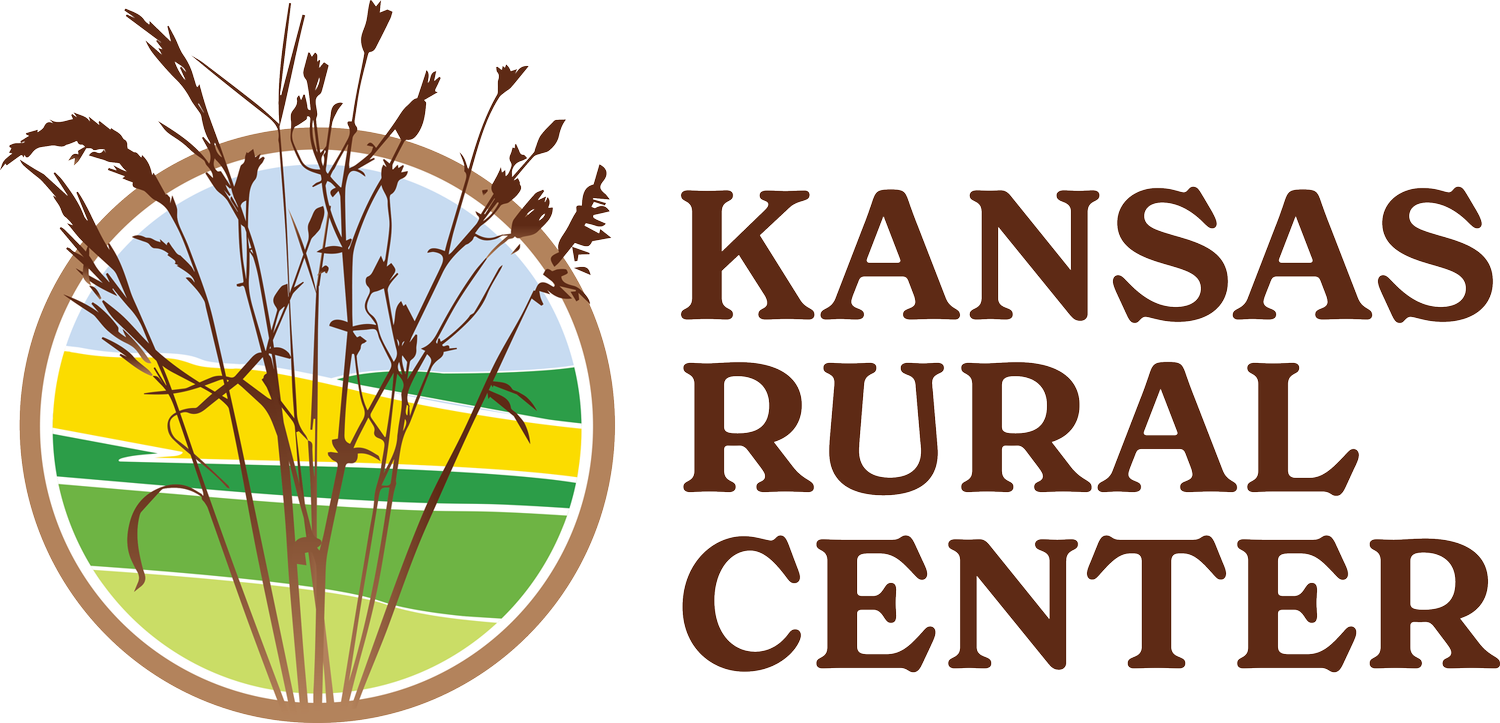Kansas Center for Sustainable Agriculture and Alternative Crops: A Brief History
Senate Bill 534 from the 2000 Session of the Kansas Legislature called for Kansas State University to create a Center of excellence on sustainable agriculture and alternative crops. The bill set out functions of the center to include:
Emphasizing research, education, outreach and marketing for sustainable agriculture and alternative food, fiber and medicinal crops.
Assisting farmers to increase their share of the food system dollar.
Collecting and analyzing basic information on the Kansas food system and opportunities for production and direct marketing.
Focusing research on value added processes and new crops that offer low-volume, high margin niche opportunities.
Assisting small farmers to access lower input costs through a delivery system with expanded access to sustainable agricultural practices.
Marketing assistance to promote products produced and processed in Kansas.
Expanding small farm research to include organic products, less capital intensive investments, energy saving technology, and agricultural practices that reduce soil erosion and restore soil health.
Developing and distributing a guide of all state services for small farms and value-added agriculture.
The bill passed and is now codified in statute - K.S.A. 76-4, 103. Although the bill carried no fiscal note, K-State’s College of Agriculture has provided funding and a home for the Center – the Kansas Center for Sustainable Agriculture and Alternative Crops (KCSAAC) since 2000. KCSAAC, first housed within the Kansas Center for Agricultural Resources and the Environment (KCARE), was later moved to, and remains in, Extension administration where it serves as host for the Kansas office of North Central Region Sustainable Agriculture Research and Education (NCR-SARE).
The primary focus of KCSAAC has always been small and medium sized Kansas farmers who may not produce traditional Kansas crops and livestock and tend to be underserved by research and extension programs. That focus led to the adoption of KCSAAC’s Mission Statement, which is:
To support small family-owned farms in Kansas through research, education and outreach focused on production, storage, processing, and marketing technologies that will boost small farm profitability, protect natural resources, and enhance rural communities.
Many of the producers served by KCSAAC over the last 23 years have only recently been considered bona fide farmers by some in agriculture. That hasn’t stopped investment in programming, education, and research targeting small family-owned farms and specialty crop production. In fact, KCSAAC and NCR-SARE have invested more than $7.5 million in Kansas for research and education programs since 2000.
A sampling from the past 23 years of projects funded in whole or in part by KCSAAC includes: Grow Your Farmers Market, Helping Farm Families Manage A Successful Business, Post Harvest Handling and Production Facilities for Horticulture Crops, Exploring Early Season Sweetpotato Slip Production Opportunities Utilizing High Tunnels, Effect of Roasting on Sensory Properties of Pecan Cultivars, Investigating Optimal Variety Selection and Production Practices for Dry Field Pea, Dryland Soil Health Network, Farm Beginnings Training, and numerous farm tours.
Agriculture has changed a lot since 2000; much of that change has been for the better especially in terms of inclusion of all types and sizes of farm. Kansas still has underserved farmers and KCSAAC remains dedicated to its mission to serve small and medium sized farms by investing in on-farm and university research and education programs that capture the depth and breadth of sustainable agriculture practices and alternative crop production in Kansas.
Kerri Ebert has coordinated the Kansas Center for Sustainable Agriculture and Alternative Crops (KCSAAC) and for the Kansas Sustainable Agriculture Research and Education (SARE) Professional Development Program for K-State Research and Extension for the past 12 years. She is also the communications coordinator for the K-State Olathe Horticulture Research and Extension Center.


